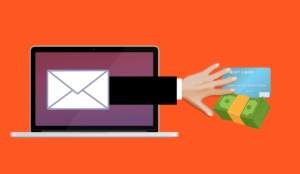When its Tax Time, Protect Your Identity
Tax time comes around every year, and though you technically have until April 15th each year, if you can, file earlier. There is a good reason for this; you can avoid putting yourself in a position to get your identity stolen.
How Filing Your Taxes Can Compromise Your Identity
 You might be wondering how you can become a victim of an identity thief just by filing your taxes. There are a couple of ways scammers do this. First, the thief will use your Social Security number to file taxes, but plug in their mailing address and then when your refund comes around, they take your refund.
You might be wondering how you can become a victim of an identity thief just by filing your taxes. There are a couple of ways scammers do this. First, the thief will use your Social Security number to file taxes, but plug in their mailing address and then when your refund comes around, they take your refund.
The second way that a scammer can steal your identity is that they take your Social Security number, get a job with it, and the employer will report their earnings to the IRS. When this happens, the IRS sees it as very suspicious, and you could get stuck paying a huge tax bill.
In both cases, there could be big problems ahead for you. For example, you might not be able to get a refund or even file your taxes. There is also the chance that they have used your Social Security number to get a loan, a credit card, or cash.
How Thieves Access Your Information
The main question you might be thinking here is this: how would an ID thief get your Social Security number in the first place? Typically, they would do this by hacking. For example, there was the huge Equifax hack. 145 plus million people were affected, and you could have been involved in it. It’s easy, when these breaches happen, hackers bathe in your information.
What Can You Do if You are a Victim?
If you are a victim of a scam like this, there are some things you can do:
- Submit Letter 5071C to the IRS – This is a form that the IRS will send if your tax return looks suspicious.
- Submit Form 14039 – This form alerts the IRS that you believe you are a potential victim of tax ID theft.
- Ask for an Identity Protection PIN – The IRS will give you this number so that it can confirm your identity for your future tax returns.
- Make a Report to the Federal Trade Commission – You also should file a report with the FTC by going to IdentityTheft.gov.
- Contact the Tax Office in Your State – Your state’s tax office might have other recommendations based on your personal situation.
If you have tried to file your taxes electronically and get rejected, you should still file a return by mail. Additionally, call the IRS Identity Protection Unit for assistance. An agent can help you start the process of taking care of the problem and ensuring your return is filed correctly.
Written by Cyber Security Expert Robert Siciliano, CEO of Credit Parent, Head of Training & Security Awareness Expert at Protect Now, #1 Best Selling Amazon author, Media Personality & Architect of CSI Protection Certification.


























